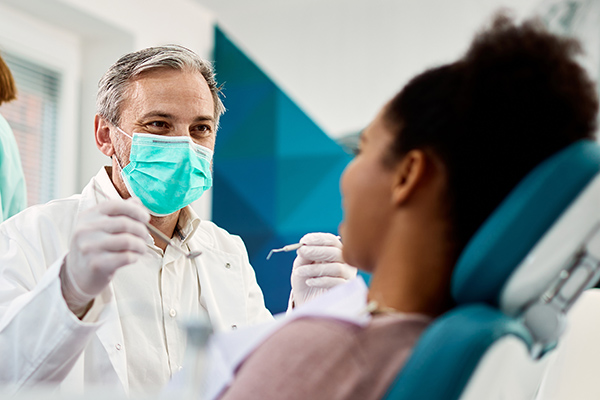Aftercare for fluoride treatments
Fluoride is a mineral that naturally strengthens teeth and helps prevent cavities. Applying fluoride in a professional setting is a simple, painless task that can be accomplished in a short period of time — even over a patient’s lunch break. Fluoride may be applied through a mouthwash or varnish. Some treatments do not need any rest time, and patients can eat immediately afterward. If a patient receives a varnish, the general dentist may recommend waiting at least 30 minutes before eating and until nighttime for brushing to let the varnish adhere to the teeth.
Food to eat after a cleaning
Patients interested in maintaining the full integrity of the fluoride treatment should avoid certain foods directly after the dental visit. Items that are especially hot, cold, crunchy, sticky, hard, spicy, or acidic are better to avoid. If a patient is not sure about some foods, simply waiting half an hour before eating at all is a safe bet. After a few hours, everything is fine to eat.
Important oral hygiene habits
While fluoride is a fantastic option to strengthen enamel and avoid decay, it can be harmful in large doses. Taking care of teeth by practicing daily oral hygiene is the most effective way to maintain great health. Brush twice each day, floss at least once, use mouthwash, and visit a general dentist biannually.
Other questions about fluoride
In addition to discussing aftercare, a patient should also understand how fluoride treatments benefit teeth, how to properly prepare for them, and what side effects might occur. Asking the right questions can help patients make educated decisions on treatments and overall oral health.
What are the benefits of fluoride?
Fluoride treatments are beneficial to both the teeth and gums. Natural bacteria that form in the mouth gradually decay tooth enamel. Fluoride restores the minerals in teeth and makes them stronger. Fluoride can also eliminate bacteria and stop its growth, which prevents cavities from forming and gums from getting infected.
Are there side effects?
It is possible to consume too much fluoride and experience negative side effects. An overabundance of fluoride may create staining or spotting and cause teeth to grow dense but not strong. Fluoride poisoning is rare but also possible.
How should patients prepare for treatment?
Fluoride is one of the easiest dental procedures. Other than brushing thoroughly before arriving at the dental office, patients do not need to prepare for fluoride.
Conclusion
Keeping teeth strong and healthy is crucial to avoid future oral problems. Patients who are susceptible to cavities or decay may want to consider fluoride in addition to regular oral hygiene habits. Talk to a general dentist if questions still remain about the process and benefits.
Request an appointment or call Hyde Park Smile Studio at 773-232-1973 for an appointment in our Chicago office.
Related Posts
Proper oral hygiene is an often-overlooked but important part of a person's dental health, as well as overall health. In general dentistry, routine dental exams are a crucial aspect of oral healthcare that maintains healthy teeth. However, there are many myths surrounding exams.The following are three of the most common myths about dental exams, as…
General dentists are responsible for restoring and replacing teeth that are lost due to decay or accidents. Unfortunately, the teeth are prone to both, making it so that treatment is necessary. A common treatment used in general dentistry for tooth restoration and replacement is a dental bridge. Having a dental bridge placed can make life…
General dentists are the most common type of dental professional. They see patients of all ages and focus their efforts on providing primary dental care. One treatment that falls under primary dental care is braces. Braces are used to correct uneven bites and realign crooked teeth. With the help of a general dentist, treatment can…
